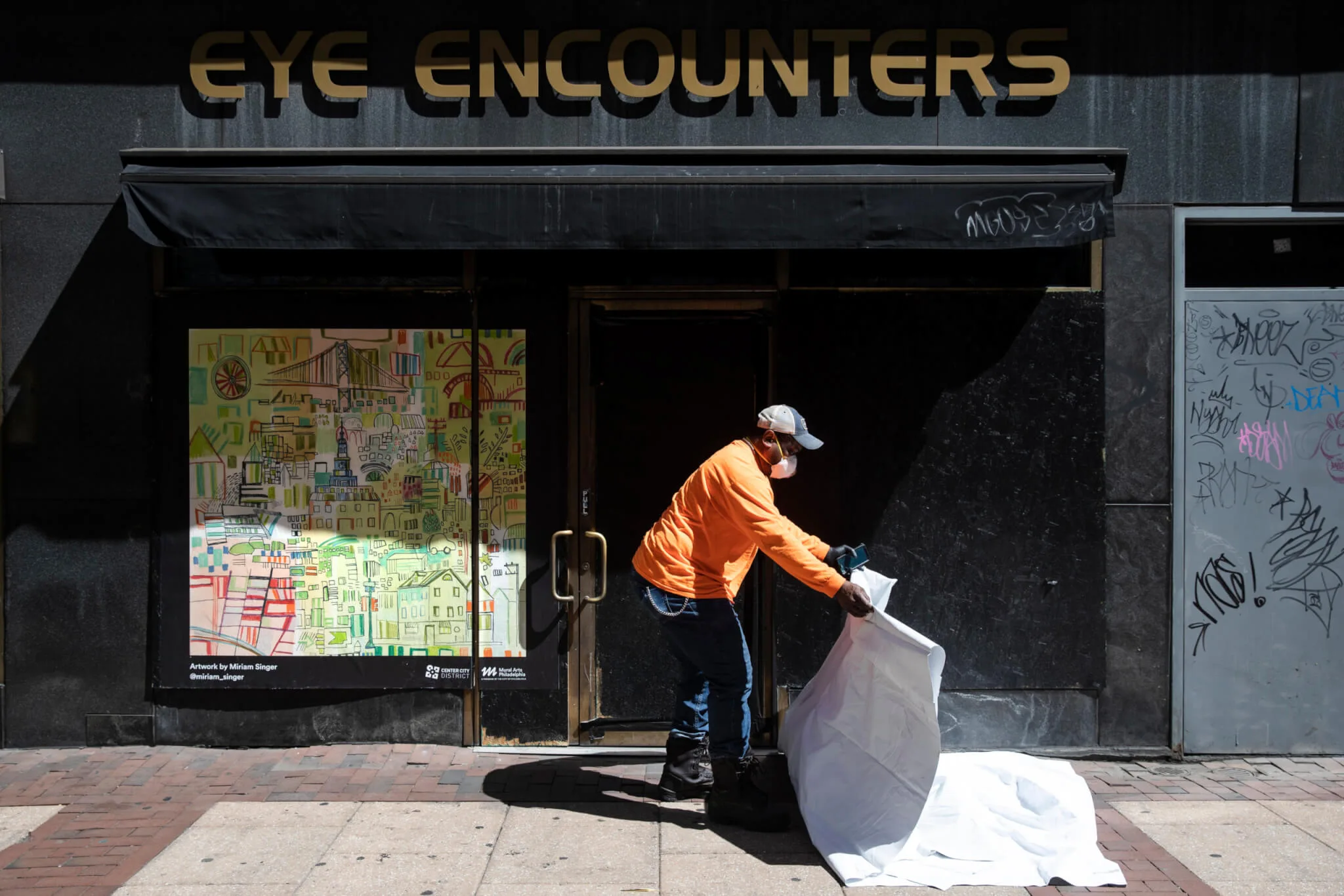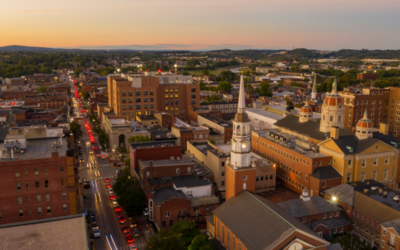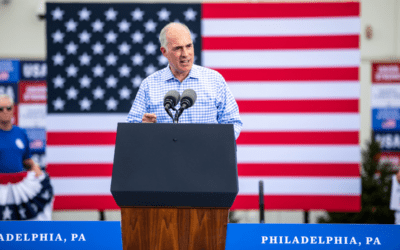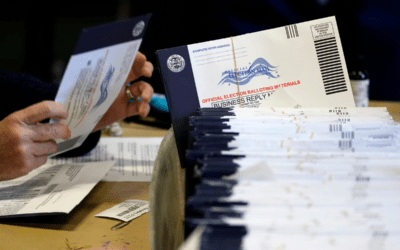
A worker folds up a tarp after attaching a poster to a shuttered business in Philadelphia, Monday, May 4, 2020. The Center City District and Mural Arts Philadelphia posted the original works on multiple locations in an effort to enhance the neighborhood awash with business shuttered to help curb the spread of coronavirus. (AP Photo/Matt Rourke)
The Republican-majority state legislature approved a resolution they believe will reopen businesses across the state. It may not be that simple.
In early June, Bucks County health officials tied 11 new coronavirus cases to a single person who attended beach house parties at the Jersey Shore two weeks earlier. The news underscored the need to remain cautious during the ongoing pandemic, even as counties across the state relax coronavirus restrictions and begin reopening to some extent.
“This is exactly why we can’t let our guard down now, even if it feels ‘safe’ to be at the beach,” said Dr. David Damsker, director of the Bucks County Health Department in a statement. “One unlucky exposure can lead to a large cascade of cases down the line. We want everyone to enjoy the warmer weather and have fun, but let’s keep in mind that COVID is still circulating in the community at baseline levels.”
This week, Bucks County topped 5,000 coronavirus infections; health officials have also documented nearly 500 deaths since the first cases were reported in early March.
Despite the recent exposure, lawmakers in the General Assembly voted on Tuesday to end Gov. Wolf’s coronavirus emergency declaration order. With a vote falling mostly along party lines in both the House and Senate, supporters of the resolution say it allows businesses to fully reopen across the state. Wolf has vowed to veto the legislation.
In March, Wolf and Health Secretary Rachel Levin ordered businesses except those considered “life-sustaining” to close. Many of those restrictions have since been at least partially lifted as the rate of coronavirus infections has slowed down. Bucks County, for example, is currently in the “yellow phase” of Wolf’s coronavirus reopening plan—meaning, some businesses have been allowed to reopen, but with safety plans in place.
Public health experts agree the shutdown was necessary to mitigate the spread of the virus and help prevent hospitals from becoming overwhelmed by patients. A new study published this week found that approximately 60 million coronavirus infections were prevented in the United States because of shutdown orders.
RELATED: What the End of Pennsylvania’s Stay At Home Order Means
As the rate of spread has slowed, Wolf has advocated for a “measured, scientific approach” to reopening the state. “We will not just be flipping a switch to go from closed to open,” he said in April.
Yet that may be what the Republican-majority state legislature is aiming to do with the newly approved resolution. They argue that the emergency orders have been detrimental to local businesses, and terminating the slow, phased reopening is vital for the state economy.
“Under the Pennsylvania Constitution, the General Assembly has the authority to terminate a state of disaster emergency at any time by concurrent resolution,” Rep. F. Todd Polinchock (R-144), who represents part of Bucks County, said in a statement posted on Facebook. “Clearly, it has become a matter of survival for more businesses and our entire economy to reopen immediately.”
Polinchock, along with other members of his party, also voted in favor of a bill two months ago—near the peak of COVID-19 infections—to reopen more businesses across the state in April. That legislation was vetoed by Wolf.
Democrats have pushed back on HR836, arguing that a mass reopening plan is premature and could put Pennsylvanians’ health at further risk.
Wolf also argues that ending the declaration would actually do more harm than good—and that the resolution, in fact, does not affect the administration’s reopening plan.
During a briefing on Wednesday, the governor reiterated that he will focus on navigating the recovery and that “ending the disaster declaration is not part of that plan.” Doing so, he continued, would end regulatory flexibility during the crisis—which would affect utility assistance for thousands of families, terminate mortgage foreclosure and eviction moratoriums, and threaten federal pandemic-related funding.
RELATED: Gov. Wolf Just Railed Against Counties Rebelling Against Lockdown
Because of confusion regarding the legal limits of the resolution, Gregory Schwab, general counsel for the administration, said Wednesday they would take the issue to court. For now, Pennsylvanians will continue to follow the three-phase plan until any formal changes are in place.
“Nothing changes,” Schwab said. “The governor has not terminated the disaster declaration yet, so all protections put in place will continue to happen.”

Central PA school board director cancels himself over gay guest speaker fallout
The Cumberland Valley School Board director resigned in protest on Monday after the board voted to reinstate Maulik Pancholy. The board originally...

New book details how Dave McCormick profited from 2008 financial crisis
Dave McCormick forged a relationship with Ray Dalio, the founder of Bridgewater Associates, in early 2008 and was rewarded with a job at Bridgewater...

18,000 PA residents who attended the Art Institute have student loans forgiven
The Biden administration announced last week they were forgiving student loans for 317,000 borrowers who attended the Art Institute. This will help...

Rep. Mike Kelly benefits from Inflation Reduction Act after voting against it
Congressman Mike Kelly was an outspoken critic of President Joe Biden’s climate change legislation but that didn’t stop him from using solar credits...

American Rescue Plan delivers computers and laptops for schools, libraries, nonprofits
President Joe Biden’s American Rescue Plan continues to deliver for Pennsylvanians. 12,000 residents annually will be eligible for computer devices...




